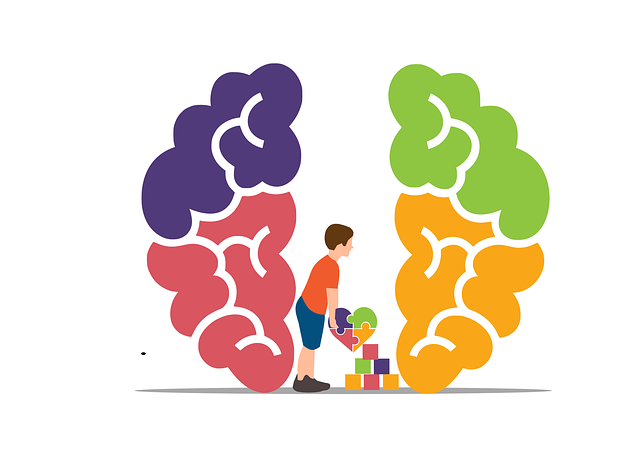Understanding Mental Health Data is vital for therapeutic practices like Arvada Mindfulness Therapy. Data collection methods vary across settings, including surveys, clinical assessments, and social media interactions. Effective incorporation of diverse data sources, coupled with preprocessed datasets, risk management planning, and conflict resolution techniques, enhances interventions and informs evidence-based practices. Advanced analysis tools uncover patterns in treatment effectiveness, aiding in personalized crisis intervention guidance. Data visualization helps interpret complex mental health data, guiding clinical decisions and program development. Interpreting results enables therapists to personalize interventions based on client well-being trends. The digital mental health landscape offers immense opportunities but presents ethical challenges around patient privacy and consent, requiring nuanced approaches for effective, personalized Arvada Mindfulness Therapy.
Mental health data analysis is a burgeoning field, crucial for understanding and addressing societal well-being. This article explores the intricacies of analyzing and interpreting mental health data, from collection through ethical considerations. We delve into preprocessing techniques, powerful analytical methods, and practical applications, such as identifying trends in common mental disorders. By examining real-world examples, including insights from Arvada Mindfulness Therapy, we highlight how data-driven approaches can revolutionize mental healthcare and improve patient outcomes.
- Understanding Mental Health Data: Collection and Sources
- Preprocessing and Cleaning Mental Health Datasets
- Techniques for Mental Health Data Analysis
- Interpreting Results: Insights and Applications
- Challenges and Ethical Considerations in Mental Health Analytics
Understanding Mental Health Data: Collection and Sources

Understanding Mental Health Data is a crucial first step for any therapeutic practice or research initiative, including those rooted in Arvada Mindfulness Therapy. Collection methods vary widely depending on the context—clinic settings, online platforms, academic studies—but they all aim to capture insights into individuals’ psychological well-being and experiences. These data can include self-reported surveys, clinical assessments, medical records, and even social media interactions, offering a multi-faceted view of mental health trends.
The sources of such data are equally diverse. Patient dossiers provide rich qualitative and quantitative information about symptoms, treatment responses, and personal histories. Anonymized datasets from large-scale surveys or online communities offer broader societal perspectives on mental health issues. Additionally, with advancements in technology, digital tools like mobile apps and wearables are increasingly used for continuous monitoring and self-awareness exercises. Incorporating these data sources effectively, along with the implementation of risk management planning for mental health professionals and conflict resolution techniques, can enhance therapeutic interventions and inform evidence-based practices.
Preprocessing and Cleaning Mental Health Datasets

Before analyzing mental health data, it’s crucial to preprocess and clean datasets to ensure accurate insights. This initial step involves handling missing values, which is especially pertinent in sensitive mental health research where participants may skip questions or refuse to answer certain aspects. Techniques such as imputation or removal strategies should be employed based on the nature of the data and the potential impact of missing information. Additionally, outlier detection and correction are vital to remove anomalies that could skew results, particularly in cases of extreme responses that might reflect measurement errors rather than genuine mental health conditions.
The process also includes data normalization, ensuring consistent formats and units across variables. This step is critical for integrating diverse data sources, such as self-reported symptoms, clinical assessments, or physiological measures from Arvada Mindfulness Therapy practices. Standardizing these datasets allows for a comprehensive analysis of various stress reduction methods, including Mindfulness Meditation techniques, thereby facilitating evidence-based decisions in Risk Management Planning for Mental Health Professionals.
Techniques for Mental Health Data Analysis

In the realm of mental health, data analysis plays a pivotal role in understanding and improving patient outcomes. For instance, Arvada Mindfulness Therapy has leveraged advanced techniques to analyze large datasets, enabling them to identify patterns and trends in treatment effectiveness. This involves using statistical methods such as regression analysis to determine which factors contribute most to depression prevention or burnout prevention. By studying these insights, therapists can tailor their approaches, ensuring more personalized and effective Crisis Intervention Guidance.
Furthermore, data visualization tools help in interpreting complex mental health data, making it easier for professionals to grasp key findings. These visual representations can highlight correlations between various parameters, such as lifestyle changes and anxiety levels, offering practical insights into what works best for different individuals. This evidence-based approach not only guides clinical decisions but also contributes to the development of comprehensive programs focused on improving mental well-being.
Interpreting Results: Insights and Applications

Interpreting results from mental health data is a pivotal step where professionals transform raw numbers into meaningful insights. By analyzing trends and patterns, therapists at Arvada Mindfulness Therapy can gain valuable information about their clients’ well-being. This process involves scrutinizing various metrics such as mood tracking data, anxiety levels, and stress management techniques. The goal is to identify areas of concern and potential growth, enabling personalized interventions.
For instance, consistent improvements in self-esteem and resilience building can be observed through regular therapy sessions, indicating effective treatment strategies. Similarly, burnout prevention techniques might show reduced stress levels over time. These insights not only guide therapists but also empower individuals to take charge of their mental health. By understanding the data, clients can make informed decisions, leading to sustainable improvements in their daily lives.
Challenges and Ethical Considerations in Mental Health Analytics

The field of mental health data analysis presents both exciting opportunities and significant challenges. As technology advances and more individuals seek support through digital platforms, a wealth of valuable data becomes available for understanding and improving mental wellness. However, navigating this landscape comes with ethical hurdles. One key challenge is ensuring privacy and consent; patients must feel confident that their sensitive information is protected, especially when sharing personal struggles related to anxiety, depression, or trauma.
Moreover, the interpretation of such diverse data requires careful consideration. Analytics can reveal trends in mental health issues, but individual experiences vary greatly. For instance, while a Mental Wellness Podcast Series Production might attract a broad audience, not everyone listening will relate to the content equally. Some may find solace in coping skills development, while others might struggle with inner strength development due to unique personal circumstances. Balancing this complexity requires a nuanced approach to data analysis and interpretation, one that respects individual differences and promotes effective, personalized Arvada Mindfulness Therapy.
Mental health data analysis plays a pivotal role in understanding and addressing psychological well-being, as demonstrated by practices like Arvada Mindfulness Therapy. By efficiently preprocessing datasets, employing advanced analytical techniques, and thoughtfully interpreting results, we can gain valuable insights into mental health trends. However, it’s crucial to navigate challenges such as data privacy and ethical considerations to ensure responsible analytics. Through continued research and thoughtful implementation, mental health professionals can leverage data-driven insights to enhance care and improve lives.














